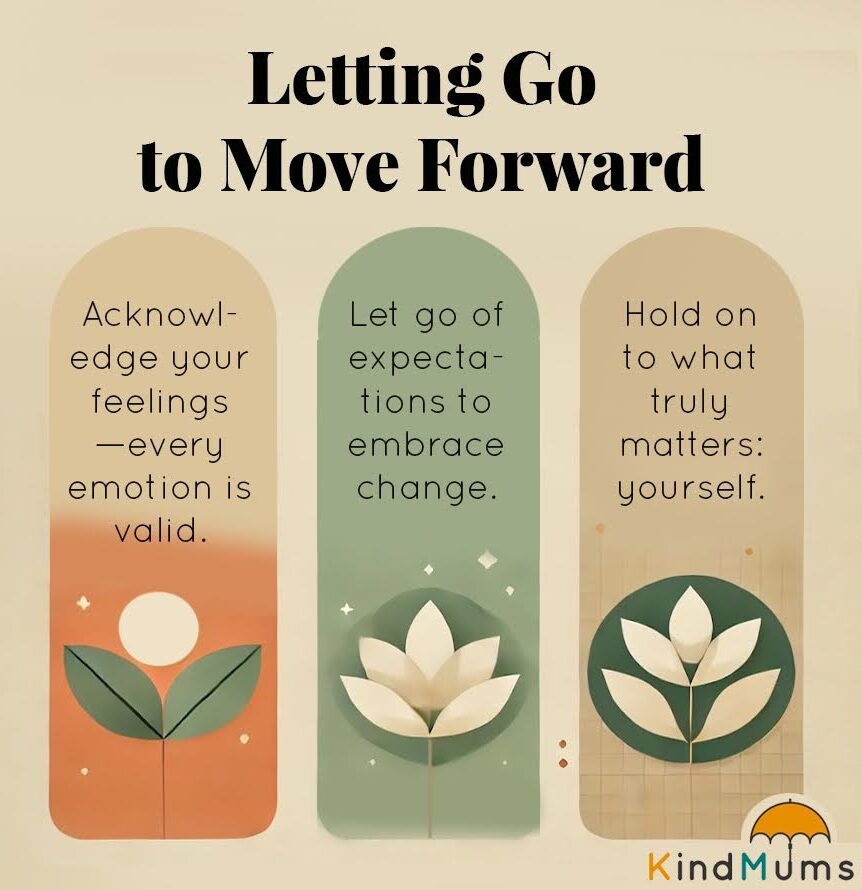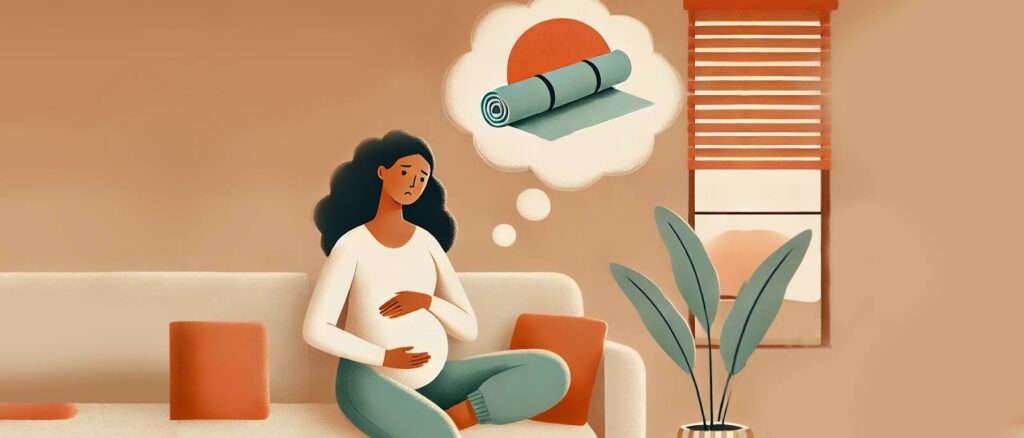A few months ago, inspired by my husband’s fitness journey, I decided to take up Pilates. As someone who’s never been very active, I was surprised to find that I loved it. Pilates not only boosted my energy for my nighttime doctorate lectures, but it also improved my overall mood. I even found myself using the treadmill more at home. It made me happy to learn a new skill—and doubly so when it also improves your quality of life!
However, this new lifestyle only lasted all of two months, because I found myself pregnant.
My first-born, Awan, was conceived through in-vitro fertilization (IVF) in 2021 and although everyone said I would likely have a second child naturally, it never happened. When Awan turned 2, we decided to unfreeze one of my eggs and timed the implantation process for baby number 2 to be born when Awan is about 3 years old. Studies have shown that this was a good age gap between siblings.
Despite meticulous planning and full awareness of its implications, I was still taken aback by how much pregnancy would change my life—again.
The unexpected rules of pregnancy
When I went to the clinic to start the implantation process, my doctor very firmly told me that I couldn’t do Pilates and exercise if we wanted the blastocyst to stick. I nodded and agreed, desperately wanting it to work while hoping I could get back to Pilates soon.
After the dreaded two weeks’ wait post-implantation, we found out that the procedure was successful and I was pregnant! We were overjoyed. But still, my doctor said I couldn’t do Pilates until the end of the first trimester. I nodded a little more hesitantly, but complied. Above and beyond the normal pregnancy-related things to avoid like raw food, alcohol and the likes, she also told me: “No sex, no stress, and certainly no running!”
Above and beyond the normal pregnancy-related things to avoid like raw food, alcohol and the likes, she also told me: “No sex, no stress, and certainly no running!”
When I finally passed my first trimester, my Pilates trainer told me, “Sorry, we don’t take customers in their second trimester if they conceived via IVF. It’s just our policy”. I was certainly disappointed, but had to accept that I wouldn’t be doing Pilates anytime soon.
Why does this even matter, you may ask?
Because every new mother has their own version of “Pilates”—something they were looking forward to doing, or something they’ve always done without a thought, but now can’t due to pregnancy-associated risks.
Perhaps it’s body massages because your favourite spa joint has a policy against pregnant women. Perhaps it’s your regular sushi place because it specializes in sashimi and the risk of listeria is too real. Or perhaps it’s no longer joining your toddler for gym class because you’re not allowed to carry her anymore.
While you feel this profound loss, you can’t help but also feel guilty when your IVF doctor says something like: “You should feel grateful the implantation worked. 50% don’t stick!” Or when your Pilates instructor smiles brightly and says: “Don’t look so sad! The baby is the priority, right? You can restart pilates in a year!” Or when your husband looks at you confused and says: “I don’t understand. You knew the implications of the implantation. It’s not like you haven’t done it before!”
Despite feeling like crap inside, you plaster a smile because you can’t be (or appear) ungrateful about being a mum. But soon enough, you don’t feel like doing any exercise at all because what’s the point? You also stop complaining about how you don’t feel much like yourself anymore even though you don’t know what to do about it. You abandon your previous, comforting routines because some parts are now off-limits and you don’t want to be reminded of the lack.
How mindfulness helped me navigate the challenges of pregnancy and motherhood
Many new mums wrestle with the desire to hold on to their “pre-motherhood” selves—whether that’s a commitment to fitness, career goals, or personal freedoms. This resistance to change can create inner conflict, especially when external circumstances (like pregnancy limitations) force a new pace.
Due to social expectations or fear of judgment, many new mums also often feel pressured to look as if they “have it all together”. This can lead to bottling up struggles, hiding feelings, and prioritizing appearances over genuine self-care. The push-pull between the “old self” and the “new self” is a natural part of major life transitions.
While I was going through this transition, I was enrolled in a Mindfulness Based Cognitive Therapy course with the Oxford Mindfulness Foundation. I initially started the course before I was pregnant with the goal to keep up and maintain my practice of meditation. However, that goal vanished halfway through the course because my morning sickness was so vicious—and not limited to mornings! I couldn’t even sit still for long without feeling nausea or pain.

At the end of the 8-week course, my teacher asked the group our thoughts on whether we achieved what we set out to do. Feeling disappointed because my meditation practice was worse than before I started the course, I raised my hand to communicate this failing of expectations. However, when my name was called to share, something struck inside of me and as I stared at my cohort on the computer screen— all of whom were women—I said something else instead.
“I initially joined this course because I wanted to improve my meditation practice, but since I became pregnant, I realised something more important. I learned that the attitudes we bring to whatever we do shapes the way we live our lives. I now realise the importance of kindness, self-compassion and non-judgment. For every time my mind wandered in the past during meditation, and I gently brought it back to the moment, I now think about all the ways I can gently bring myself back to the present—to this huge transition in my life that needs a bit more gentleness and openness to all the changes that are happening.”
As I went on about how mindfulness creates that space for change to happen, I saw so many of them nodding in agreement. It just so happened that my cohort comprised of women who had all gone through pregnancy and were very empathetic about my situation. It felt like a burden was finally lifted.
Letting go of expectations: How mindfulness helped me accept my evolving identity
After the course, I started becoming more aware of my attachment to my “old life”, and stopped judging my “new life” as one that was filled with all the things I had to give up. This allowed for a gentler transition and more space to explore the new aspects of my identity.
I’ve also become more aware of self-critical thoughts and my fear of other people’s judgment, allowing me to manage these emotions better, and helped me open up more to family. For new mums, holding on to pre-motherhood routines or appearances may feel like a way to stay grounded, to stay “true to yourself”. However, it’s okay to let go of certain expectations, while also keeping elements that truly resonate with our evolving identities.
In mindfulness, practicing non-judgment is central. It’s about allowing yourself to notice feelings, even uncomfortable ones, without labeling them as “bad” or “wrong.” As mindfulness expert Jon Kabat-Zinn says, it’s simply about observing what arises in us without criticism or evaluation
In mindfulness, practicing non-judgment is central. It’s about allowing yourself to notice feelings, even uncomfortable ones, without labeling them as “bad” or “wrong.” As mindfulness expert Jon Kabat-Zinn says, it’s simply about observing what arises in us without criticism or evaluation
So here I am, politely nodding through all the “no Pilates” rules, the “no stress” cautions, and the “isn’t this what we planned?” reminders. Sure, I get it—Pilates can wait, sushi will still be there next year, and Awan’s baby sibling will be worth it. But sometimes, it’s hard not to feel like the things I loved, and the routines that kept me… well, “me”, have been swapped out, piece by piece. Motherhood may be a beautiful transformation, but it’s also a practice in letting go of pieces of yourself—and not always willingly!
But maybe the most mindful thing I can do, especially now, is to just acknowledge that all these feelings are allowed to be here. Disappointment, joy, and even the urge to escape to my happy place on the Pilates mat—they can all exist together. Because while I may not be able to do all the things I once did, I’m learning that holding on to what matters most is not about Pilates or routine, but about holding on to myself.
And maybe, just maybe, that’s the greatest strength I can offer my little ones, too.
More Posts

From Gap to Gain: The Mindset That Helps Mums Achieve More Every Day
I’ve always loved reading, but since becoming a mum and balancing work, life, and everything in between, audiobooks have become my go-to way to absorb knowledge.



